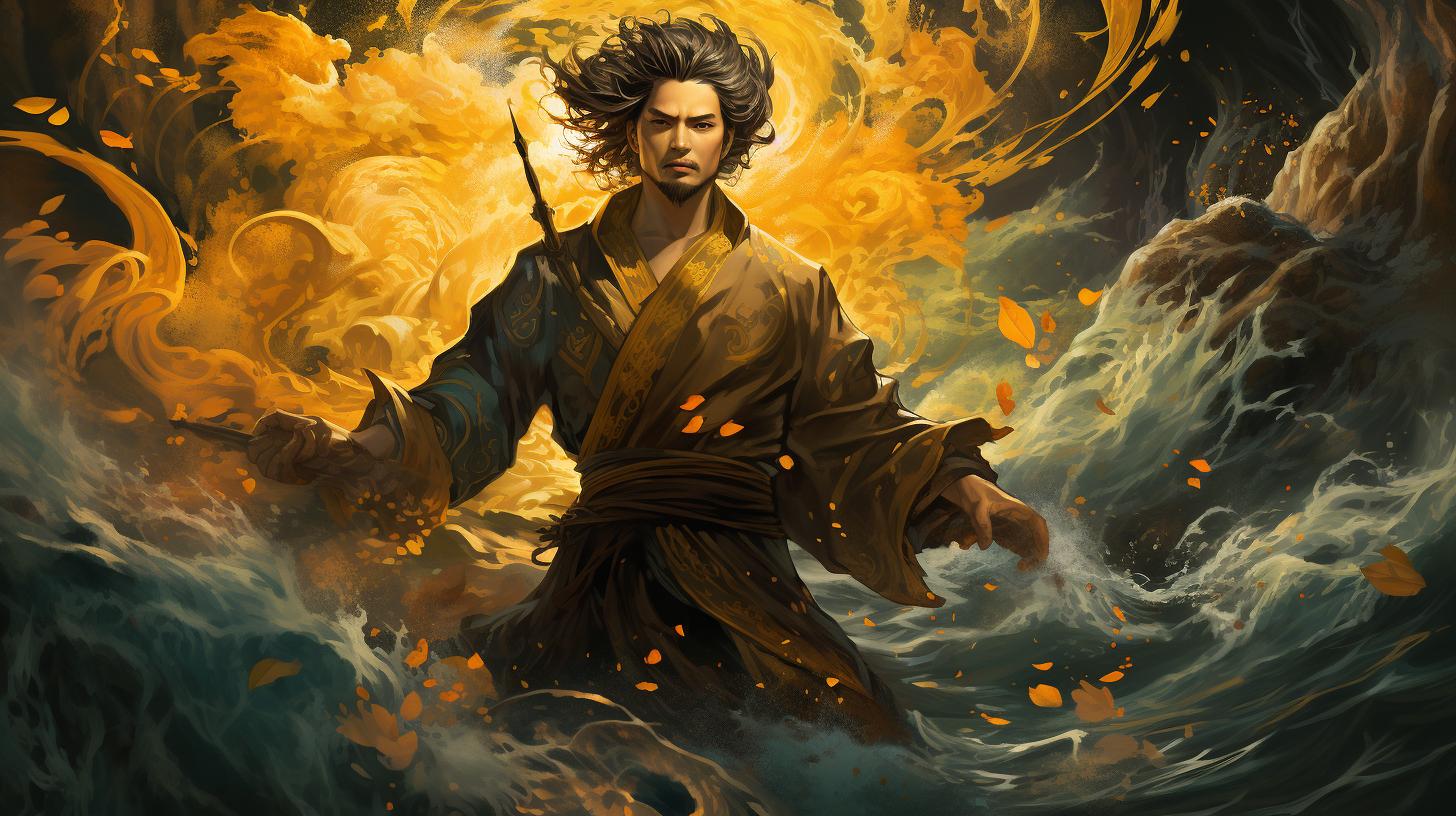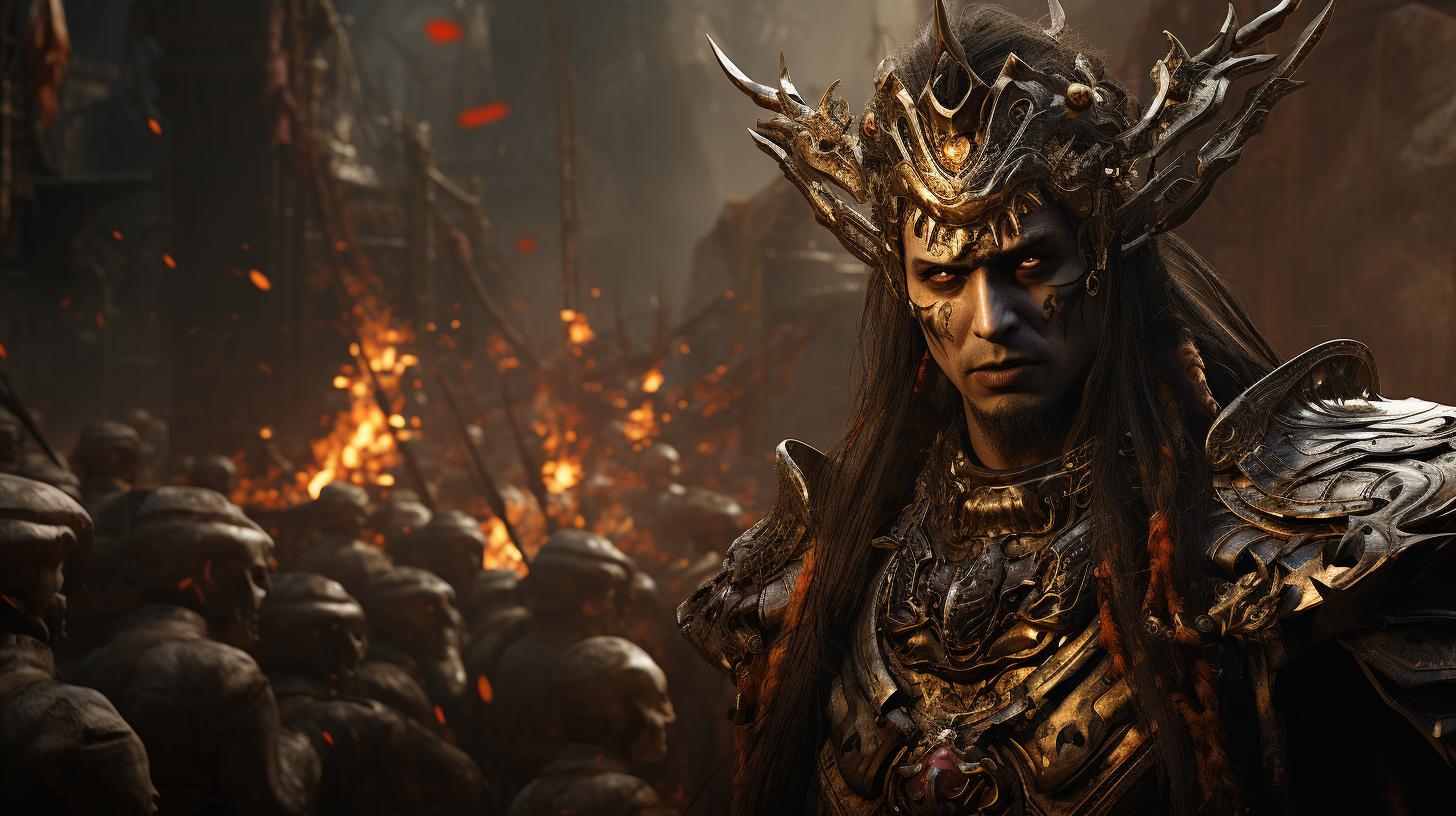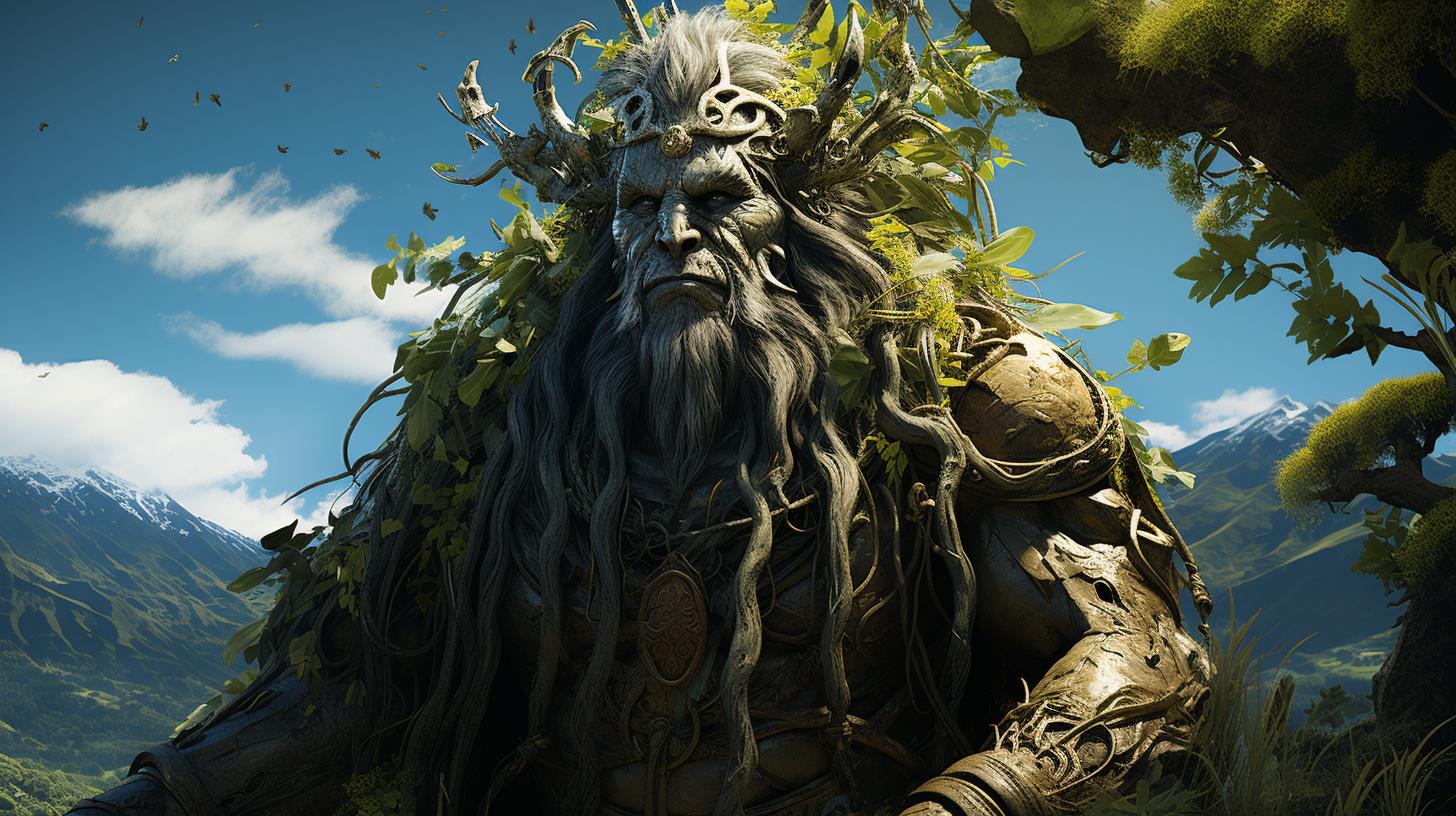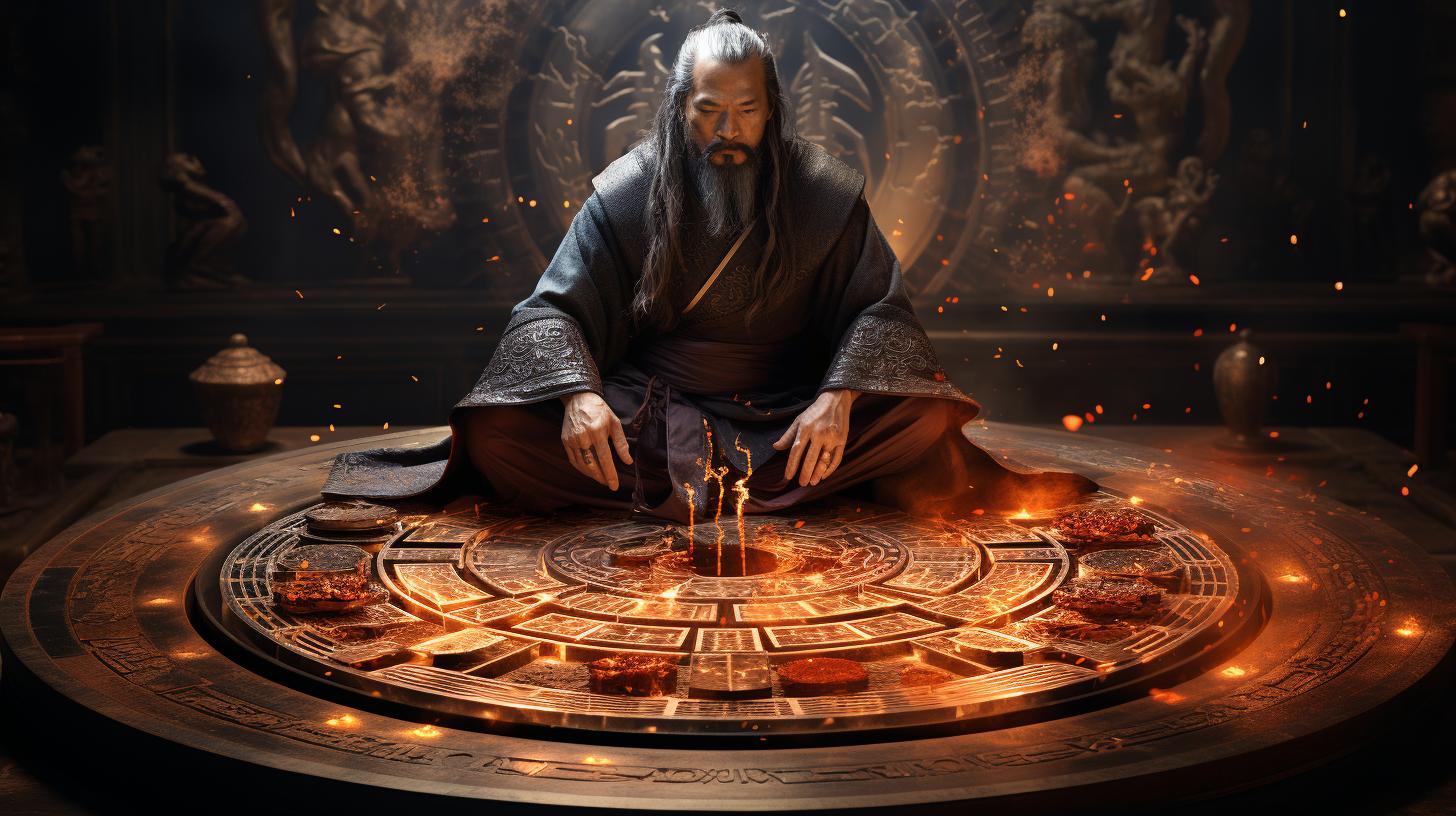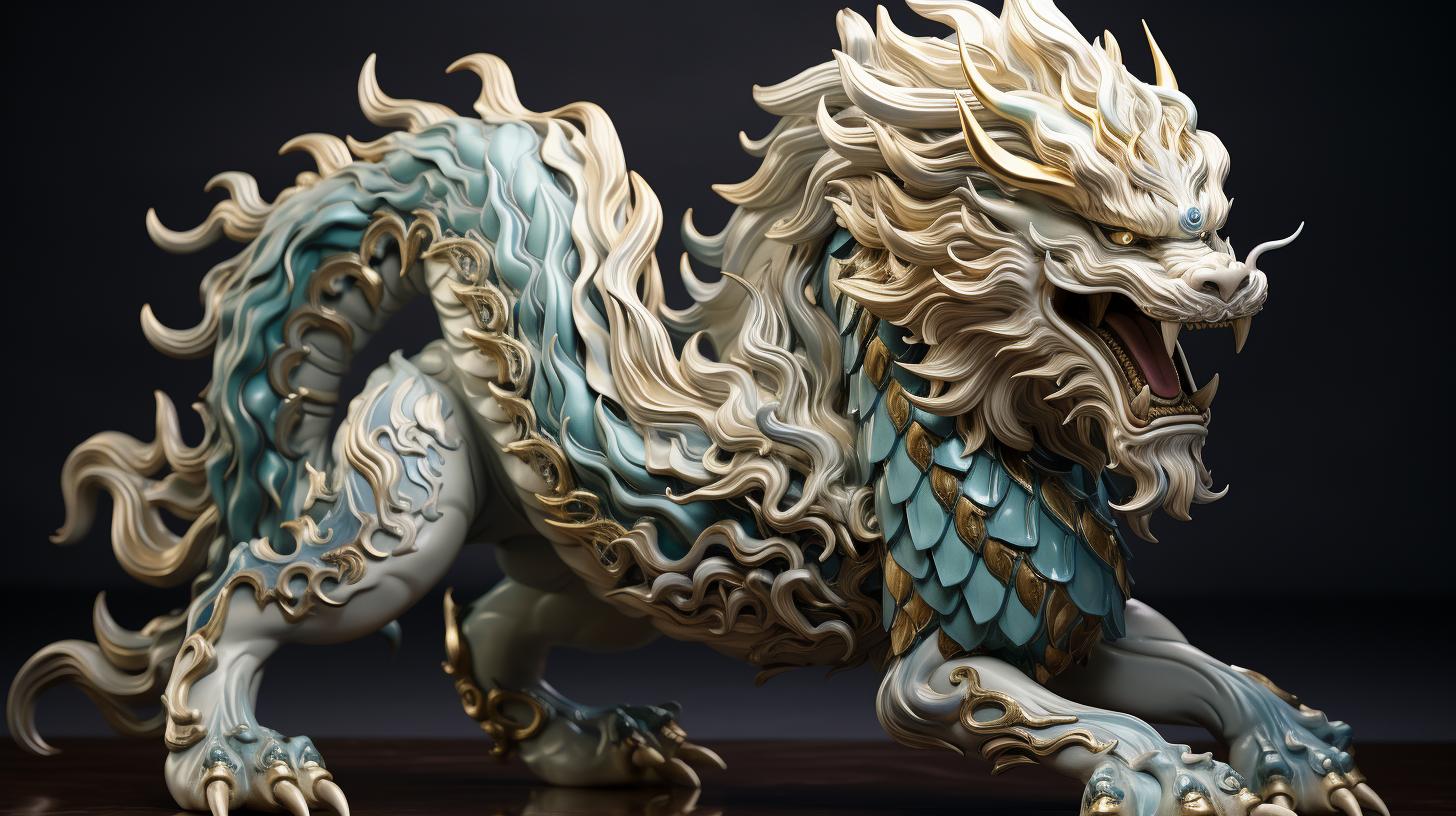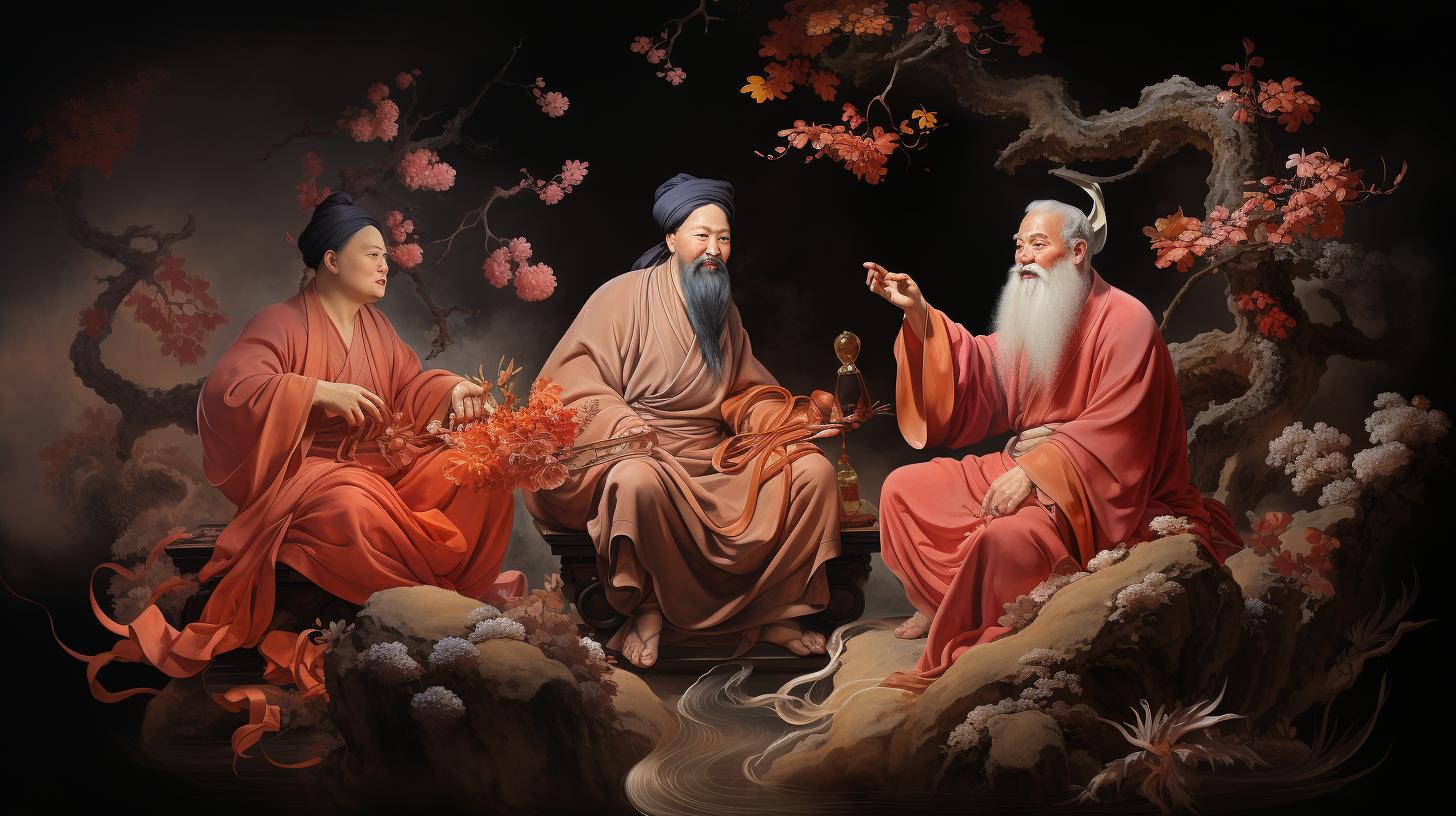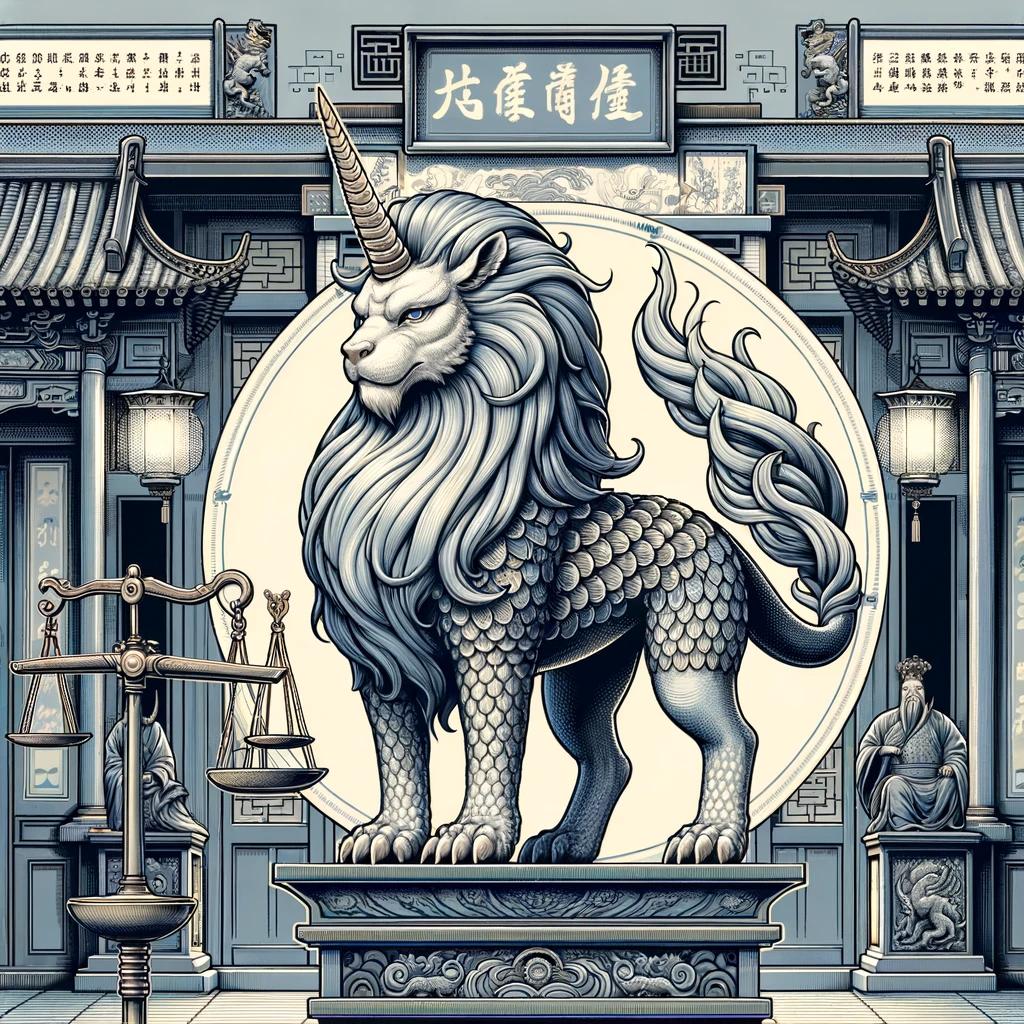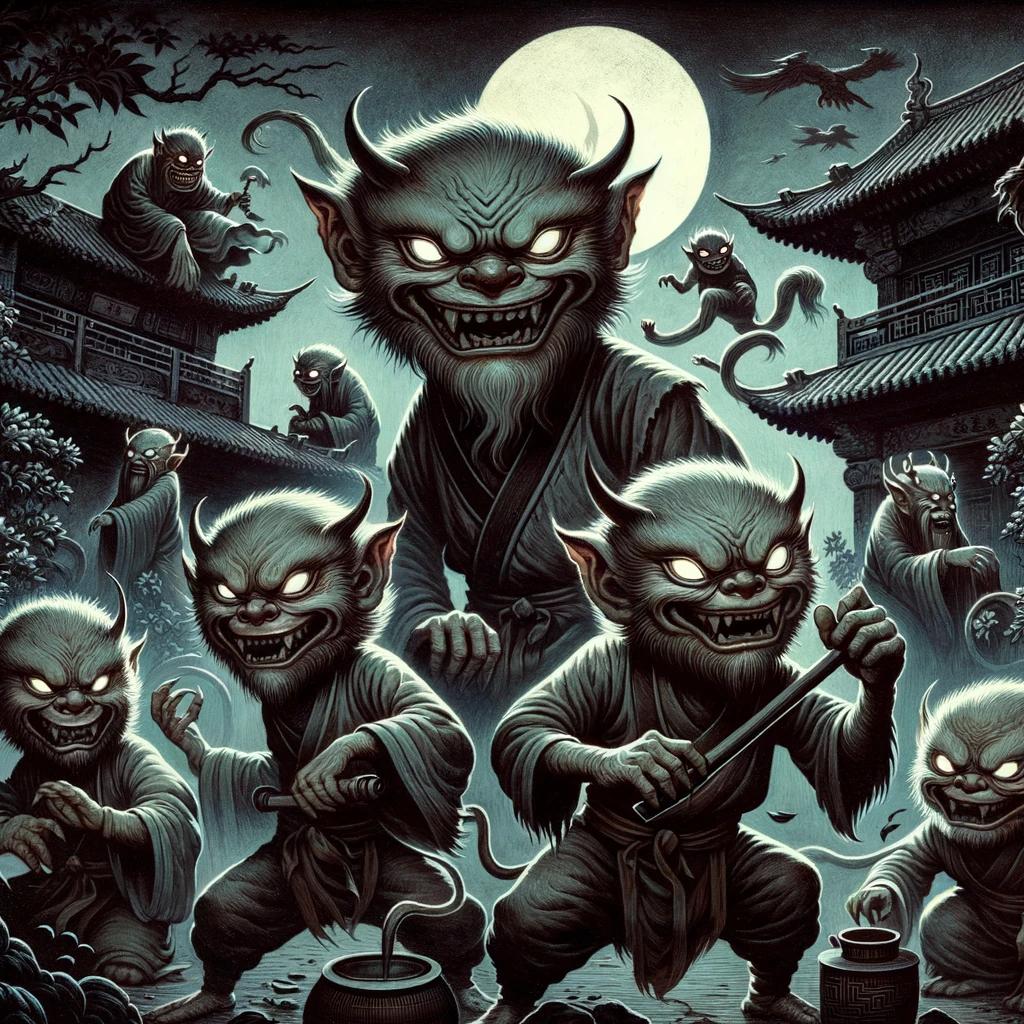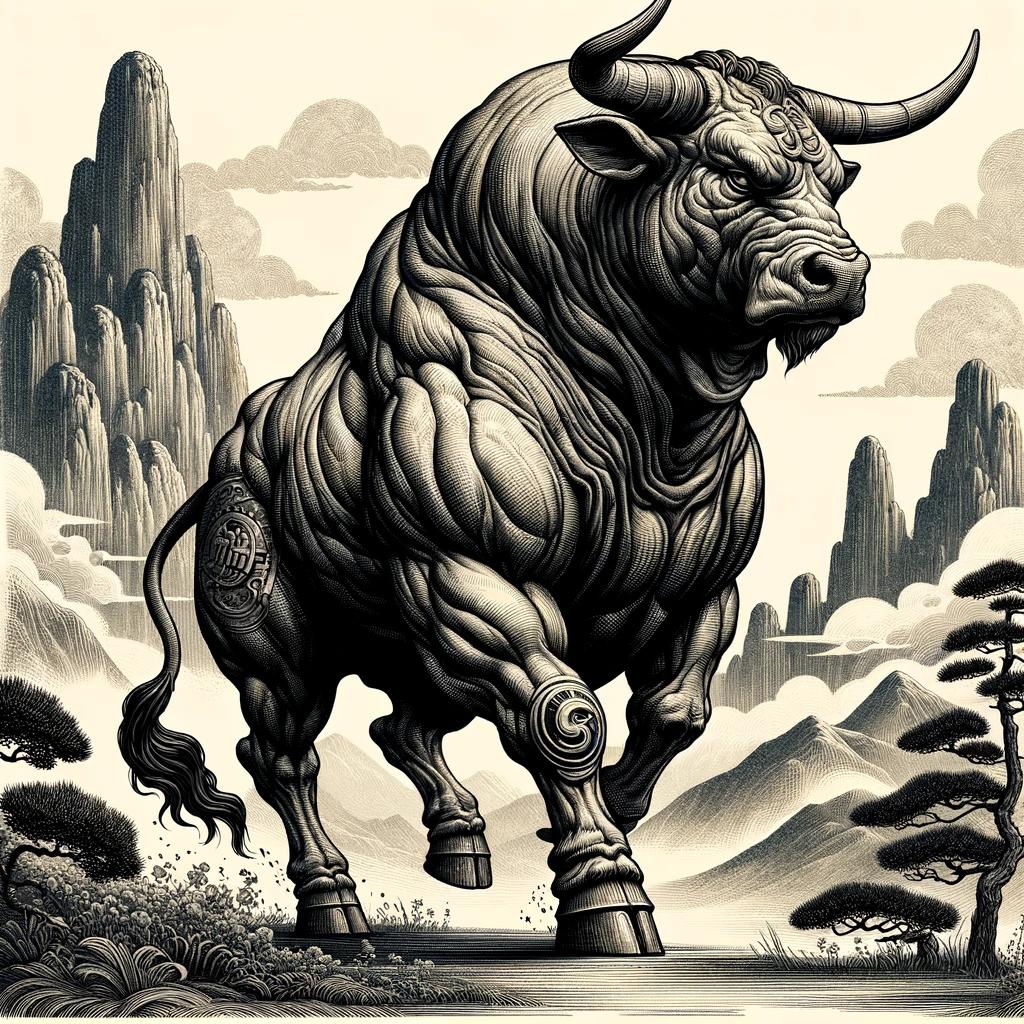Hebo Chinese God: Unveiling the Mysteries and Legends
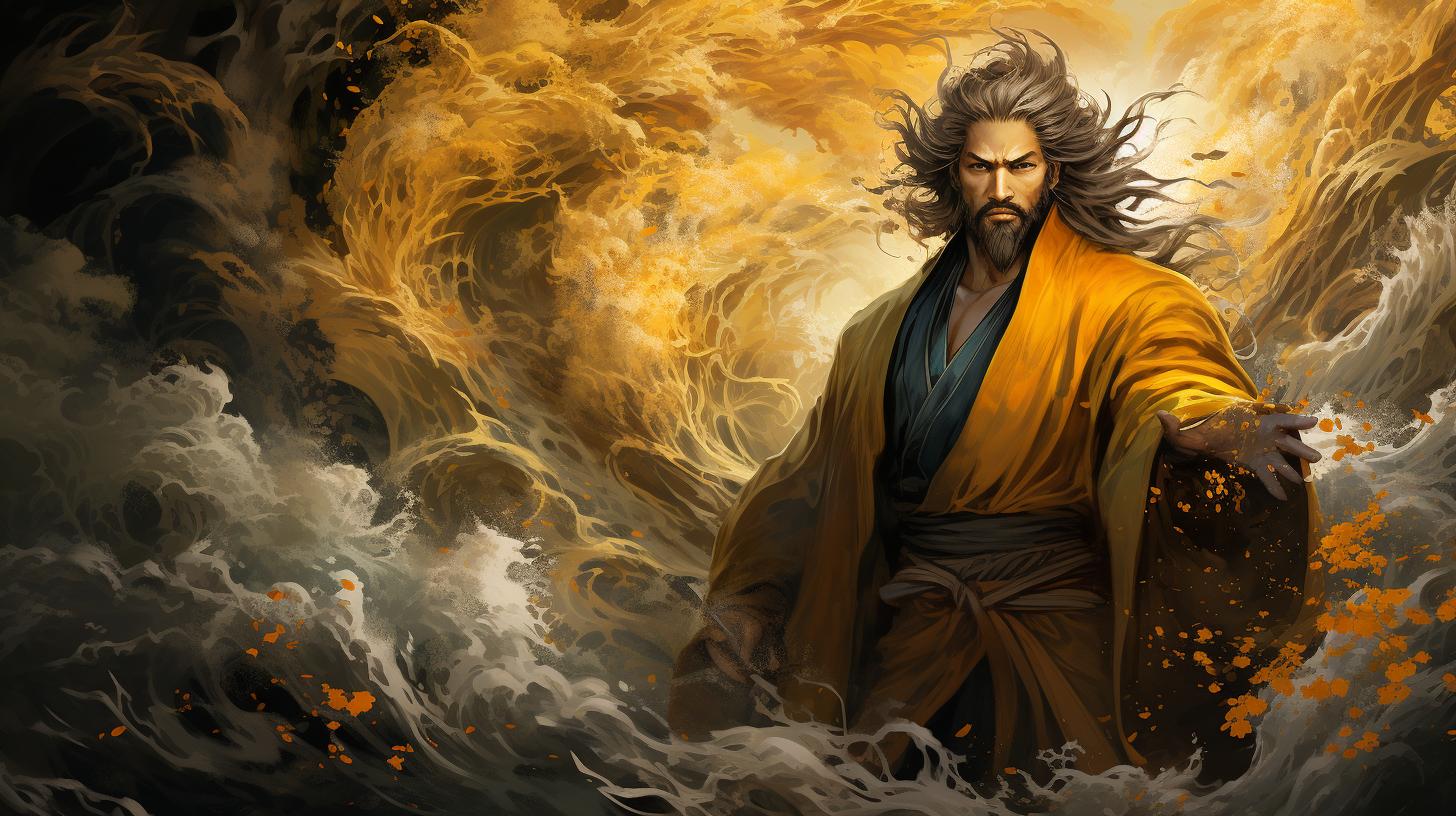
Hebo Chinese god is a significant figure in Chinese mythology, encompassing a rich tapestry of legends and beliefs. This deity holds a special association with the Yellow River, influencing river cultivation and inspiring numerous stories and myths.
Hebo’s symbolism and representations play a pivotal role in Chinese art, literature, and music, while festivals and celebrations continue to honor this revered god. This article delves into the origins, role, worship, and cultural impact of Hebo, shedding light on the enduring legacy of this celestial entity in modern-day China.
The Legend of Hebo
In the rich tapestry of Chinese mythology, the legend of Hebo shines brightly. This ancient deity has captured the imagination of generations with captivating stories that explore the origins of creation, delve into his fascinating role and powers, and shed light on the beliefs and worship associated with him.
Origins and Creation Story
Hebo’s origins are steeped in fantastical tales that speak of his divine birth and cosmic lineage. According to ancient legends, he emerged from the primordial chaos and took his place as a celestial being, intricately tied to the fabric of existence.
While the specifics may vary across different accounts, these stories paint a picture of Hebo as a powerful and enigmatic force that shaped the world.
Role and Powers of Hebo
Hebo assumes a multifaceted role in Chinese mythology, embodying various aspects of nature and the human experience. Often regarded as the deity of the Yellow River, Hebo wields immense power over its currents and influences river cultivation, providing sustenance to countless communities.
He is also associated with rain, fertility, and abundance, symbolizing the interconnectedness between humanity and the natural world.
Worship and Beliefs Associated with Hebo
Devotion to Hebo is deeply rooted in Chinese society, with rituals and ceremonies devoted to honoring his divine presence. Worshipers seek his blessings for bountiful harvests, protection from floods, and general well-being.
Beliefs surrounding Hebo often emphasize his benevolence, guiding principles of gratitude, harmony, and reverence for the forces of nature. Through prayers, offerings, and acts of reverence, adherents reinforce their spiritual connection with this revered deity.
Hebo in Chinese Mythology
Hebo, a prominent figure in Chinese mythology, holds significant relationships with other Chinese gods, captivating with captivating stories and myths surrounding his powerful presence. Moreover, Hebo carries profound symbolism and representations that resonate throughout Chinese culture.
Relations with Other Chinese Gods
Hebo intertwines with various deities in Chinese mythology, creating intricate connections and narrative threads. Notably, he shares a strong bond with Nüwa, the goddess responsible for creating humans. Their collaboration symbolizes the harmony and balance between the heavens and earth, as well as the interdependence of different realms in Chinese cosmology.
Stories and Myths Involving Hebo
Hebo’s captivating stories and myths depict his divine powers and interactions with mortals. These tales often emphasize Hebo’s role in maintaining order, guiding humanity, and resolving conflicts. One famous tale recounts Hebo’s intervention during a catastrophic flood, where he demonstrates his control over water and aids in the salvation of countless lives.
These narratives not only showcase Hebo’s might but also impart valuable moral lessons.
Symbolism and Representations of Hebo
Hebo embodies various symbols and representations within Chinese culture. Frequently depicted as a divine figure wearing flowing robes and holding a scepter, Hebo signifies his dominion over water and the natural elements.
The imagery of flowing water in relation to Hebo represents transformation, adaptability, and the continuous cycle of life. Additionally, Hebo’s presence in artwork, literature, and religious rituals exemplifies his enduring cultural significance in China.
Hebo and the Yellow River
The connection between Hebo and the Yellow River holds significant importance in Chinese mythology and culture. This section delves into the influence of Hebo on the river and the legends surrounding their relationship.
Connection between Hebo and the Yellow River
The Yellow River, also known as the “Mother River” in China, has a deep connection with Hebo. According to ancient beliefs, Hebo is considered the god who governs this mighty river, controlling its flow and blessings.
Influence of Hebo on River Cultivation
Hebo plays a crucial role in river cultivation along the Yellow River. The Chinese people believe that Hebo’s influence brings fertile lands and sustains agriculture, promoting a prosperous livelihood for communities residing along the river’s banks.
His blessings are seen as essential for the success of crops and the prosperity of the region.
Legends and Folklore Surrounding Hebo and the Yellow River
The association between Hebo and the Yellow River has inspired numerous legends and folklore throughout history. Tales are told of epic battles between Hebo and other gods to control the river’s powerful forces.
These stories often serve as cautionary tales, emphasizing the importance of respecting nature’s immense power.
One famous legend tells the tale of Hebo creating the Dragon Gate on the Yellow River, offering fish the chance to transform into dragons if they can swim against the river’s strong currents and leap over the gate.
This legend symbolizes perseverance and the ascent to greatness, highlighting the significance of determination and overcoming obstacles.
The folklore surrounding Hebo and the Yellow River not only captivates the imagination but also instills values such as respect for nature, hard work, and resilience within Chinese society.
Influence of Hebo in Chinese Culture
Hebo, the Chinese god, holds a significant influence in Chinese culture, leaving an indelible mark on various aspects of art, literature, music, festivals, and celebrations. This section explores the wide-reaching impact of Hebo, showcasing how this celestial entity continues to shape and inspire the cultural fabric of modern China.
Impact on Art, Literature, and Music
Hebo’s captivating mythology has served as a wellspring of inspiration for artists, writers, and musicians throughout Chinese history. From traditional paintings and intricate sculptures to epic poems and mesmerizing musical compositions, artists have sought to capture the essence and mystique of Hebo.
His divine presence often symbolizes harmony, balance, and the cyclic nature of life, making Him a beloved subject in various artistic expressions.
In literature, Hebo’s significance is evident in the inclusion of His stories and legends in ancient texts, showcasing His revered status among Chinese writers.
His tales often intertwine with other mythical beings, exploring themes of heroism, morality, and the triumph of good over evil. Hebo’s portrayal in literature continues to captivate readers, serving as a testament to His enduring relevance.
Furthermore, Hebo’s divine presence resonates within the mesmerizing melodies and compositions of traditional Chinese music. His influence can be seen in the graceful soundscapes created by traditional instruments, evoking a sense of spirituality, tranquility, and deep connection with nature.
Festivals and Celebrations Honoring Hebo
Hebo’s significance is celebrated with grandeur and enthusiasm through festivals and commemorative events held across China. These vibrant festivities highlight the deep-rooted cultural and spiritual ties with Hebo and serve as important occasions for communities to come together.
One of the most prominent festivals honoring Hebo is the Yellow River Festival, which pays homage to the god’s association with the famous river. During this event, locals gather to showcase traditional music, dance performances, and spectacular river-themed decorations.
The festival serves as a symbol of gratitude for the bountiful resources provided by the Yellow River and the divine protection of Hebo.
Another notable celebration is the Hebo Day, dedicated solely to revering and honoring the influential deity.
Communities engage in colorful processions, traditional rituals, and cultural performances, emphasizing the revered place Hebo holds in Chinese culture.
Continuing Relevance of Hebo in Modern China
Despite the passage of time, Hebo’s presence in Chinese culture remains vibrant and pertinent. His stories, virtues, and symbolism continue to inspire and guide individuals in their daily lives.
Hebo’s teachings, emphasizing harmony, wisdom, and balance, are cherished as valuable lessons that resonate with the challenges and complexities of the modern world.
His tales endure as moral compasses, guiding individuals towards virtuous actions and fostering a sense of community and shared values.
Moreover, as China embraces its rich cultural heritage, Hebo’s legacy serves as a bridge connecting past traditions with the present.
His enduring relevance fosters a sense of identity, pride, and cultural continuity among the Chinese people, ensuring that Hebo’s divine spirit lives on in the hearts and minds of future generations.
.

